Almost every human, if not all use laser types of equipment including CD/DVD players, laser printers, barcode scanners, laser surgery, Holographic Imaging, Laser Spectroscopy and laser lighting display (entertainment) in all facets of life; but not all understand the principle behind the laser technology.
The word laser is an abbreviation for light amplification by stimulated emission of radiation. The laser is a source of light or device that emits coherent (same frequency, phase, and wavelength) beam of light through the process of optical amplification based on the principle of stimulated emission.
History
The idea of lasers started with Einstein prediction of stimulated emission in 1917. At first, the world MASER (Microwave amplification by stimulated amplification of radiation) was used instead of the LASER.
MASER based on the theoretical work on laser principles and development of a microwave amplifier and oscillator (maser) by Arthur Schawlow, Charles Hard Townes, Nikolay Basov and Alexander Prokhorov in 1953. In 1959, Gordon Gould proposed that stimulated emission can be used to amplify light. He coined the name LASER for the optical resonator capable of emitting a coherent beam of light. The first laser device to be developed is the pulsed ruby laser, by Theodore Maiman in 1960, and then the Carbondioxode lasers and laser diodes followed.
Laser Light
The laser light is different from the ordinary light because of its unique features which include:
Coherence: The waves in the laser beam have wavelengths that are in phase in time and space.
Monochromatic: Ideally, the natural light is a mixture of different colors (multiple wavelengths), but the laser light is of a single color (one wavelength), i.e., it is monochromatic. These can be proved using a prism.
Directionality: The new photons produced during stimulated transmission travel in one direction against the random direction of the photons of the ordinary light. These make the width of the laser beam to be narrow thus causing it to travel long distance without much divergence, i.e., collimation.
Working Principles
Population inversion: Ideally, under normal thermal equilibrium in a system of atoms, there are more atoms/molecules in the lower energy level than the higher energy level. However, this can be reversed by pumping energy into the system thus disturbing the normal standard conditions and resulting in more atoms/molecules in the higher energy level. This process is referred to as population inversion which is a basis for stimulated emission.
Stimulated emission: An atom in its excited state is capable of decaying spontaneously after some time into a lower energy level and releases energy in the form of photons in random directions during a process named spontaneous emission. An incoming photon might stimulate the photon emission which is referred to stimulated emission.
The emitted photon is thus coherent with the incoming photon, i.e. (same energy and frequency in phase and travels in the same direction); the incoming radiation is amplified. Stimulated emission is, therefore, a basis for light amplification- a core process necessary for production laser light.
How it works
Setup
A laser oscillator comprises an optical resonator (laser/resonant cavity which contains the laser/resonant medium and pair of mirrors; one which is a partial reflector or the output-coupler and the other a total reflector). Amplification takes place in the resonant medium. Laser oscillation (generating beam internally) is the difference between the laser oscillator and laser amplifier. The gain medium may be liquid, gas or solid (semiconductors or crystals).
Process
The gain medium is supplied with external energy in the form of light or electric current through a process called pumping (optical pumping or semi-conductors pumping) using a pump. These create the population inversion phenomena in the gain medium; thus stimulating the stimulated emission.
The light travel to and fro within the gain medium is reflected by the mirrors with increasing intensity as a result of the many photons been released. The output-coupler (partially reflector mirror) allows some of the light (the laser beam) to pass through (about 5%) while reflecting others back. The laser beam could be in continuous forms or the form of short, intense pulses.
Application and the Future
Bar-code scanners: These scanners make use of laser light to read information from stripped barcodes on devices by decoding the symbol into information for the computer users.
CD/DVD Players and Blu-ray players: All these players used laser light to read and store data from discs.
Laser Surgery: Doctors have been able to use laser beams to eradicate tumors in the brain by burning them due to the high absorbing nature of laser beam by water inside cells of the body. Laser light has also been used stop bleeding issues in body tissues. Laser beam has also been transferred through optical fibers to destroy kidney stones and also for treating skin defects.
Researchers believe laser light in future years will be able to correct some mental disorders by stimulating chemical reactions in the brain and even improved sight by reshaping the whole human eye in case of visual defects apart from the typical cornea correction surgery.Nuclear Fusion: Many scientists believe nuclear fusion is the new thread to greater nuclear power, but fusion requires high temperature and pressure for it to occur. Research by physicists at the Lawrence Livermore National Laboratory in the 1960’s has established that laser light in form of laser chain (series of laser amplifiers that increase the power of the output laser beams) is capable of supplying the conditions necessary for fusion to take place. The researchers at the Lawrence Livermore National Laboratory successfully built a laser called Nova with a power of 1,000 trillion watts which also help in proving that extraterrestrial life exists.
Holography
Further reading on Laser applications and the Future of Lasers
References
Britannica: Laser
The Future of the Laser
How laser works
History of Lasers
Lasers by RP Encyclopedia
Properties of laser
All images are referenced or sourced in the post
Proud member of steemstem. Thanks to @foundation for the gif

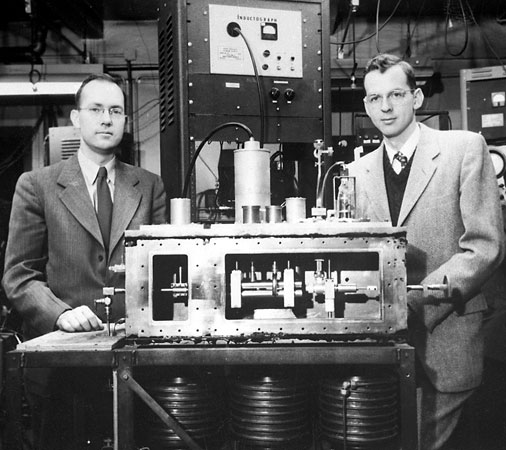

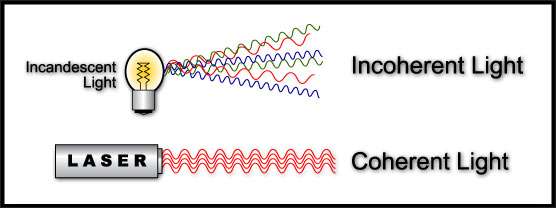
.jpg)
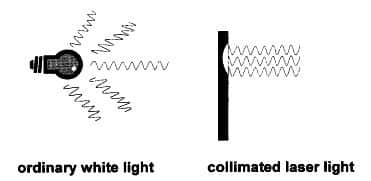
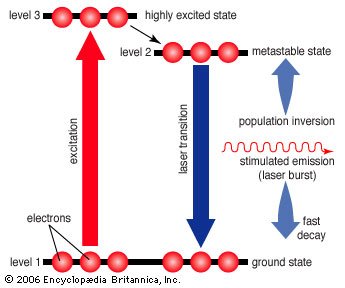
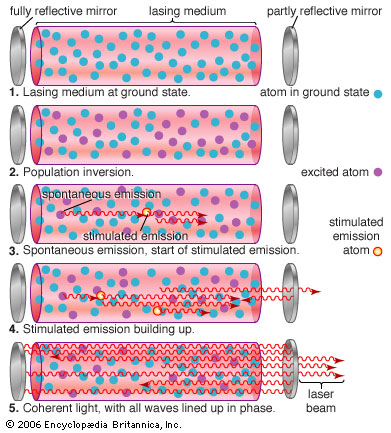
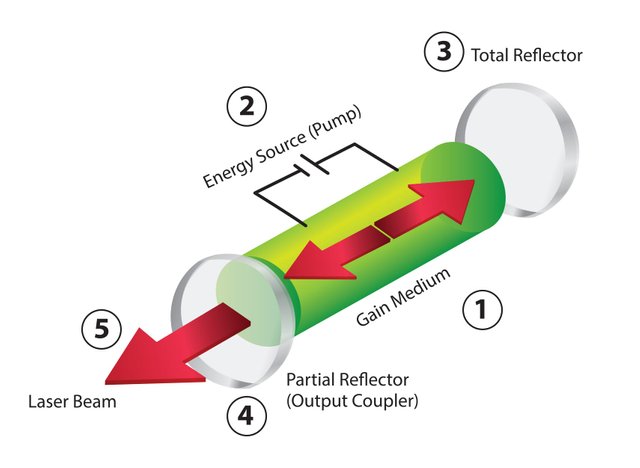
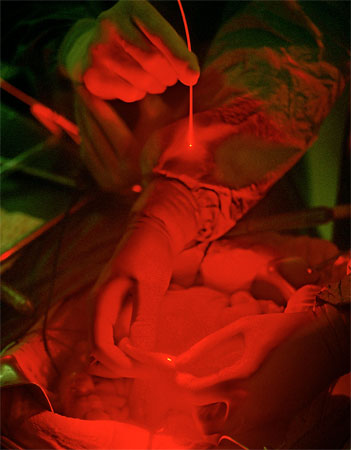
Cool post bro.
I’m still waiting for a light saber
Downvoting a post can decrease pending rewards and make it less visible. Common reasons:
Submit
thanks for the information provided this something interesting :) It is very helpful this post luck greeting
Downvoting a post can decrease pending rewards and make it less visible. Common reasons:
Submit
Actually, if I am not wrong, there is always a spread in wavelengths It can however be made very (very very!) small. If I remember well, we can reach precision of 10-18 (I don't remember the exact numbers for the exponent, and I cannot check them, but it is amazingly large).
Downvoting a post can decrease pending rewards and make it less visible. Common reasons:
Submit
Yes you are right
That very very small is what makes laser a unique and powerful light
For the ordinary light source, the wavelength spread is 1 in 10^6(10^-6) and 1 in 10^16 (10^-16) according to engineering physics by Nadu
Downvoting a post can decrease pending rewards and make it less visible. Common reasons:
Submit
Detailed. Informative. Wow
Downvoting a post can decrease pending rewards and make it less visible. Common reasons:
Submit
Thanks bro. Following your steps
Downvoting a post can decrease pending rewards and make it less visible. Common reasons:
Submit
Good job
Downvoting a post can decrease pending rewards and make it less visible. Common reasons:
Submit
a good post
Downvoting a post can decrease pending rewards and make it less visible. Common reasons:
Submit
Congratulations @tormiwah, this post is the second most rewarded post (based on pending payouts) in the last 12 hours written by a User account holder (accounts that hold between 0.1 and 1.0 Mega Vests). The total number of posts by User account holders during this period was 2356 and the total pending payments to posts in this category was $1742.96. To see the full list of highest paid posts across all accounts categories, click here.
If you do not wish to receive these messages in future, please reply stop to this comment.
Downvoting a post can decrease pending rewards and make it less visible. Common reasons:
Submit
I like it when young scientists display good understanding of a particular topic. Even though I am not an aficionado of this topic, I still found it refreshing. Good work
Downvoting a post can decrease pending rewards and make it less visible. Common reasons:
Submit
awesome post
Downvoting a post can decrease pending rewards and make it less visible. Common reasons:
Submit
Lasers have always been fascinating to me! Great read!
Downvoting a post can decrease pending rewards and make it less visible. Common reasons:
Submit
Congratulations @tormiwah! You have completed some achievement on Steemit and have been rewarded with new badge(s) :
Click on any badge to view your own Board of Honor on SteemitBoard.
For more information about SteemitBoard, click here
If you no longer want to receive notifications, reply to this comment with the word
STOPDownvoting a post can decrease pending rewards and make it less visible. Common reasons:
Submit